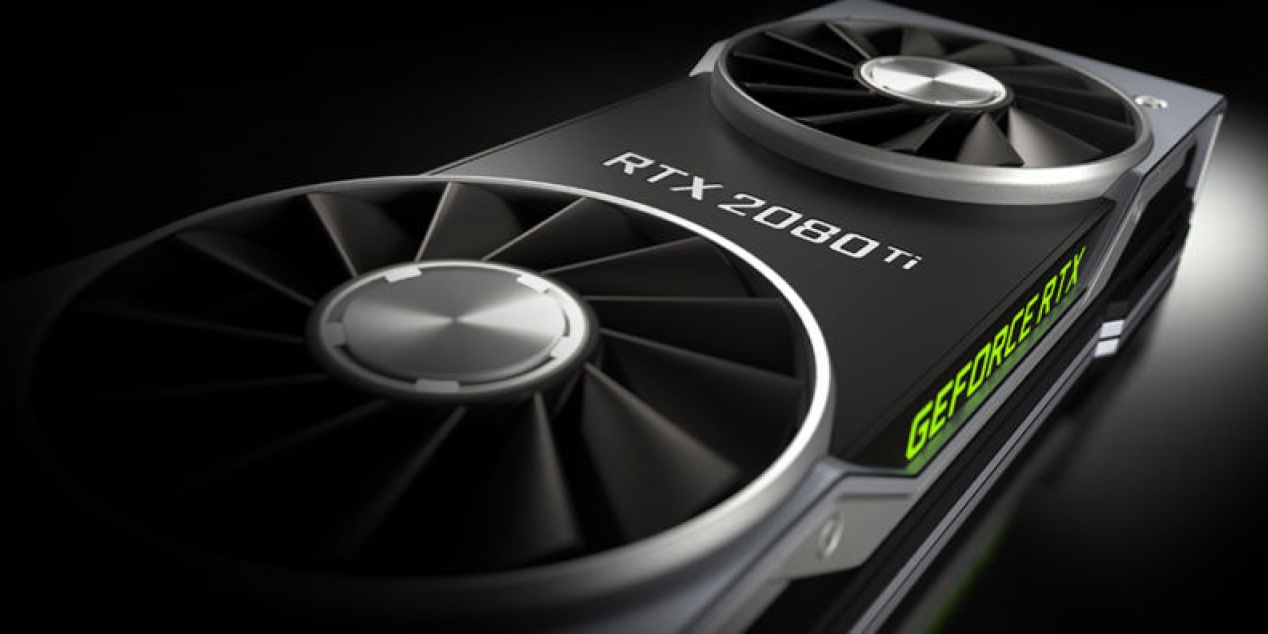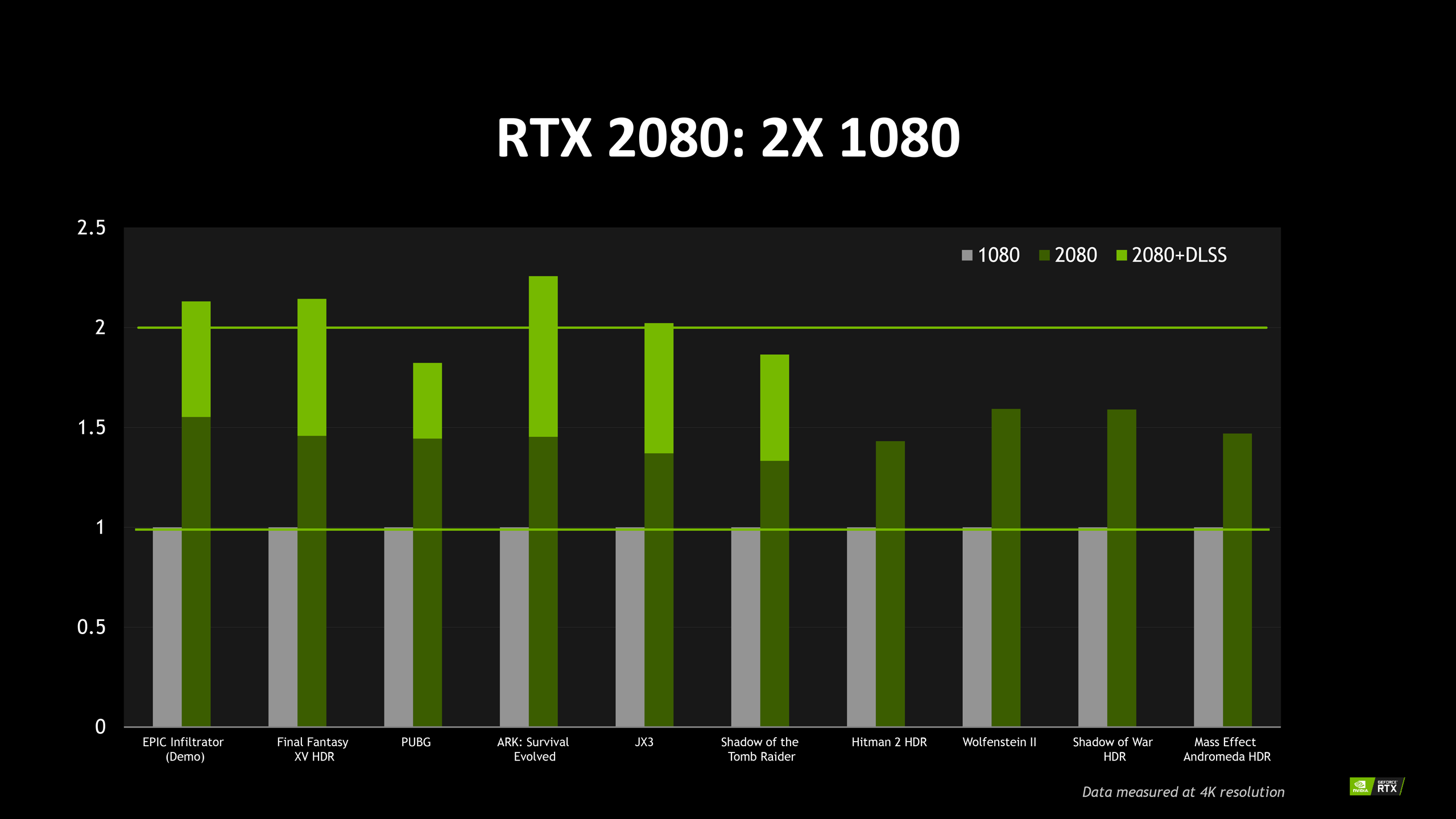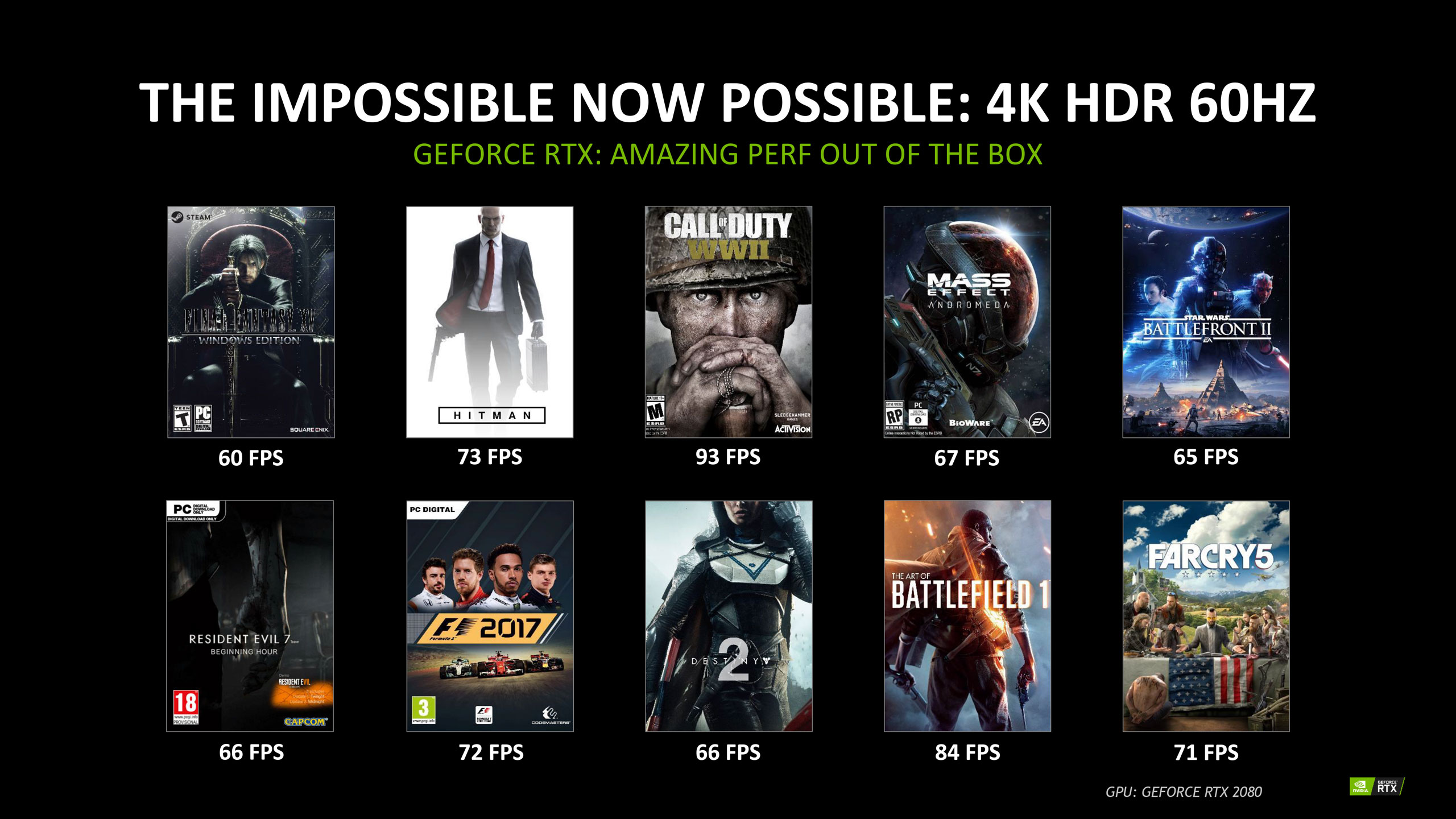Nvidia's benchmarks claim the RTX 2080 will be 50% faster than GTX 1080
Even if you don't use ray tracing, Nvidia's new Turing GPUs tower over the 10-series cards.

There's been a lot of discussion about Nvidia's new GeForce RTX cards. With the big focus on ray tracing, many have expressed concern that the Turing architecture won't be much faster in existing games—or if you prefer, faster when doing traditional rasterization. Nvidia briefed members of the press on a lot of additional details regarding the Turing architecture and changes, and we'll have full performance benchmarks when the cards actually launch, but Nvidia provided the following slides to give a taste of what sort of performance we can expect:

Starting with a comparison of Turing against Pascal, the most pertinent numbers are the dark green bars. On average, Nvidia expects the RTX 2080 to be around 50 percent faster than the GTX 1080. We can't say right now how accurate that number is, but Nvidia did reiterate the "50 percent faster per core" message, and that's without using the new features.
The DLSS performance—that's Deep Learning Super Sampling, Nvidia's new AI-enabled anti-aliasing technology—meanwhile shows even larger improvements. The baseline here is against TAA (temporal anti-aliasing), and the performance improvements shown here seem a bit high. In games that I've benchmarked lately, turning TAA off typically only improves performance by 5-10 percent, but Nvidia is showing up to 50 percent higher performance with DLSS than TAA. Basically, take the DLSS numbers with a grain of salt for now, and we'll look at testing performance under those situations when the hardware becomes available.

Nvidia also provided this second slide of data, showing 4K and HDR rendering on the RTX 2080 at more than 60fps. Again, these are Nvidia's marketing numbers, and we don't have details on the quality settings. I'd assume they're high quality, perhaps even ultra, and I've asked for clarification. Depending on the settings used, performance on the RTX 2080 does appear to be around 50 percent faster than the GTX 1080.
Based on these figures, RTX 2080 should easily beat the GTX 1080 Ti, and possibly the RTX 2070 could beat the GTX 1080 Ti as well. Of course, this is at 4K, and the performance advantage will likely be smaller at 1440p and 1080p in most games. But if you were worried Turing might be a small improvement relative to Pascal, that doesn't appear to be the case.
We'll have full performance results in September when the RTX 2080 and RTX 2080 Ti go on sale.
Keep up to date with the most important stories and the best deals, as picked by the PC Gamer team.
Jarred's love of computers dates back to the dark ages when his dad brought home a DOS 2.3 PC and he left his C-64 behind. He eventually built his first custom PC in 1990 with a 286 12MHz, only to discover it was already woefully outdated when Wing Commander was released a few months later. He holds a BS in Computer Science from Brigham Young University and has been working as a tech journalist since 2004, writing for AnandTech, Maximum PC, and PC Gamer. From the first S3 Virge '3D decelerators' to today's GPUs, Jarred keeps up with all the latest graphics trends and is the one to ask about game performance.


